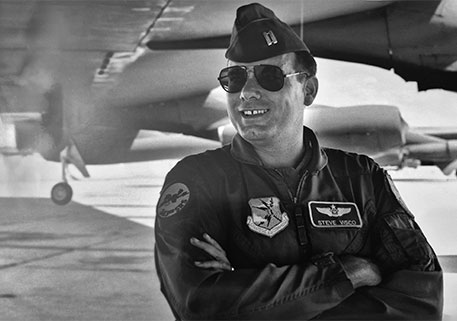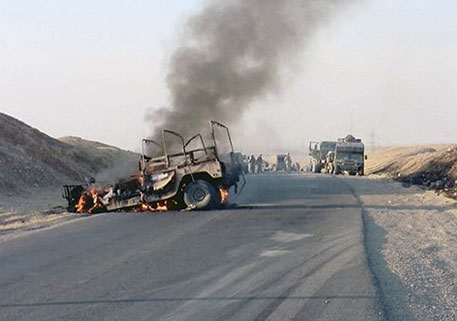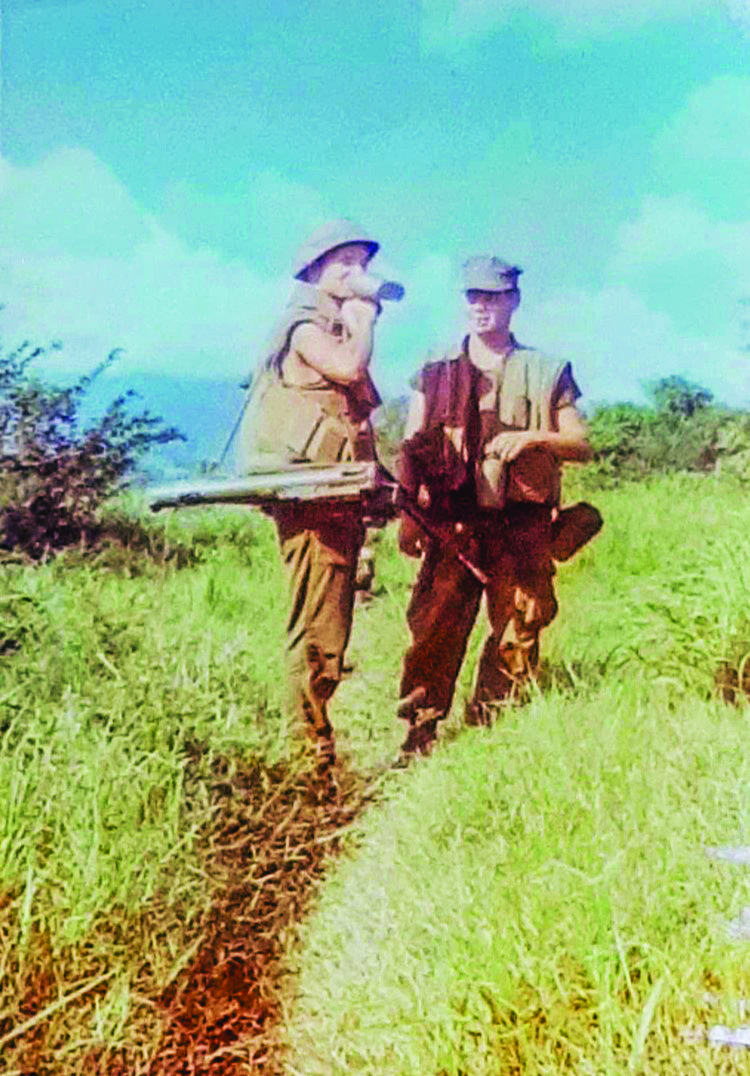
Marines reunite, add new chapter to history
Editor’s Note: This article contains vivid combat descriptions that may be triggering to veterans with PTSD and upsetting to others.
DAV life member Bill Klobas has lived a life full of experiences, but he can’t remember some of them because of injuries sustained in Vietnam. However, a little bit of luck and a lot of personal resolve led to a reunion with Marines from his past that helped bring back lost memories.
On April 26, 1969, Klobas was among a group of Marines who were scattered throughout an open field and pinned down by Vietnamese snipers.
“They must have followed us out of the jungle,” said Klobas. “Once they started firing, I remember seeing and getting behind a large boulder or rock.”
The team of Marines called upon their big guns—155 mm howitzers—on a nearby hill to eliminate the threat.
“We had called in artillery close to us before, so I wasn’t surprised when I heard it whistling over my head,” said Klobas. “The first one landed about 500 yards in front of me. I thought I was going to live at that point. When I heard the next round, I knew it was going to hit me. I thought I was dead. I just curled up.”
Klobas was struck in the blast. He was immediately airlifted to the nearest field hospital—the last thing he remembered. He endured months of rehab with spotty memory of his time in Vietnam before exiting the Marine Corps.
His transition was a challenge. He often struggled to reconcile how he saw himself as a man with what he saw in Vietnam. But in 1975, he met Gale, the woman he credits with saving his life—and now his wife of 45 years.
The couple would go on to have four children while Klobas worked in construction to provide for his family. But the repressed memories from Vietnam never completely went away.
“It was just a couple of years ago that I was watching cartoons with my young granddaughter when she looked at me and smiled,” Klobas said. “That triggered something inside of me and I had to go. I drove away to a place and cried for two and a half hours. I couldn’t get the image of burned kids out of my head.”
Sensing the need to get help, Klobas opened up to his daughter Casey for the first time about some of his experiences in Vietnam and his ongoing struggles.
“I saw a softer side of him,” Casey said. “I feel closer to him. It’s like a secret bond. But I think of our childhood and how he would mask things. I think that is what hurts the most.”
One of the results of these conversations was Casey getting her father to agree to file for benefits through the Department of Veterans Affairs. Klobas’ medical records indicated that he was airlifted in Vietnam, but no reason was listed. This prompted their need for more proof.
“All I really knew was that it happened during Operation Oklahoma Hills,” said Klobas. “I searched for some documentaries on YouTube and found one that was about 10 minutes long that I watched.”
While attempting to click the full screen icon on his computer, Klobas accidentally opened up the comments section.
“I never read comments,” Klobas said. “But I happened to see a comment that was 4 or 5 years old asking to talk to any Marine who had been a part of Operation Oklahoma Hills.”
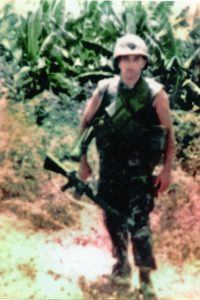
The author of that comment was Al Moreno, who was working on a book about his service in the Marines. Moreno left his phone number in the comment, and Klobas, unsure if anything would come of it, decided to call.
“I told the man who I was and I heard the phone hit the floor,” Klobas said. “He started screaming ‘Rocket Man!? Rocket Man!?’ and then picked up the phone and asked me if this was a joke.”
As luck would have it, Moreno was one of the first Marines to reach Klobas after the errant 155 mm round struck him.
“Klobas was hurled through the air like a rag doll with his head, arms and legs flailing in opposite directions all at once,” Moreno recalled. “When we got to him, our corpsman was feverishly working on him. He was hemorrhaging blood from his nose, mouth and ears. His eyes were rolled back and you could only see the whites of his eyes. Nobody thought he was going to make it.”
While on the phone, Moreno asked Klobas if he knew Richard “Ski” Czerniejewski.
“I said no, and that’s when Al told me he was the radioman who called in my medevac,” said Klobas.
Moreno had been in contact with Czerniejewski since 2006 and quickly arranged a phone call between them.
“I was really happy when I found out he was alive,” Czerniejewski said. “[Klobas] was tossed about 30 yards. Nobody thought he could live. We dragged him away from the snipers and called in the air support. We all assumed he was dead.”
Klobas explained to both of them that he was in the process of filing for VA compensation and needed two witnesses for his attempts to receive the Purple Heart. Czerniejewski, a DAV life member since receiving benefits assistance in the 1970s, encouraged Klobas and Casey to get DAV’s help.
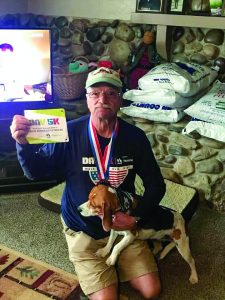
“I told him he should really get DAV involved with his benefit claims. I even submitted a write-up along with Al for Bill’s attempt for the Purple Heart.”
Casey did all of the legwork she could before eventually handing the claims to DAV in December 2019. While Klobas continues to maneuver the VA system for an increased disability rating and the Purple Heart, the pursuit of his benefits have brought him some closure and acceptance about his forgotten past.
“Getting in touch with Al and Ski was probably the best thing to happen to me in my life, especially with my memory,” Klobas said. “I couldn’t do memorials or events until last year. I felt pride for the first time in 50 years! I would give my life today for the Marine Corps. They were and are my friends.”
Sadly, due to COVID-19, the three Marines have not been able to get together in person, but that is a top priority as soon as it’s feasible. In the meantime, Casey is proud to see the change in her father.
“The difference in him is huge,” she said. “It’s a weight lifted off of his shoulders. It’s a place of forgiveness for him.”
Note to readers: If you or someone you know served in Vietnam and was a part of Operation Oklahoma Hills or believe they served with Mr. Klobas, please let us know by emailing DAV at [email protected].


